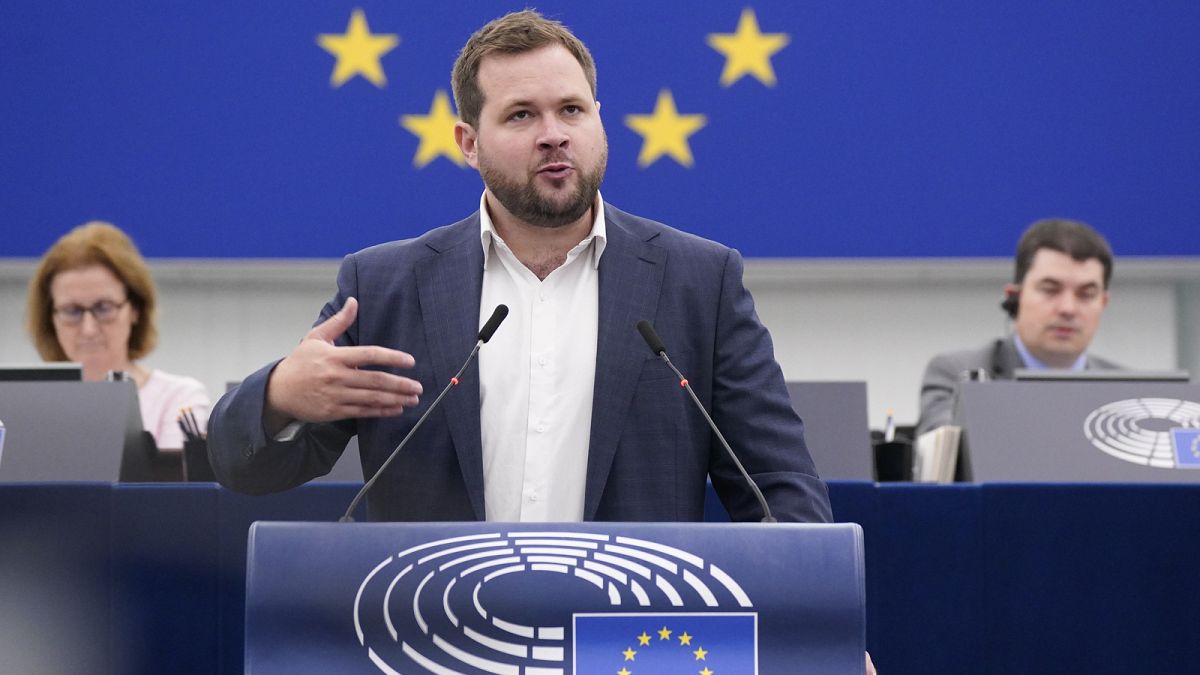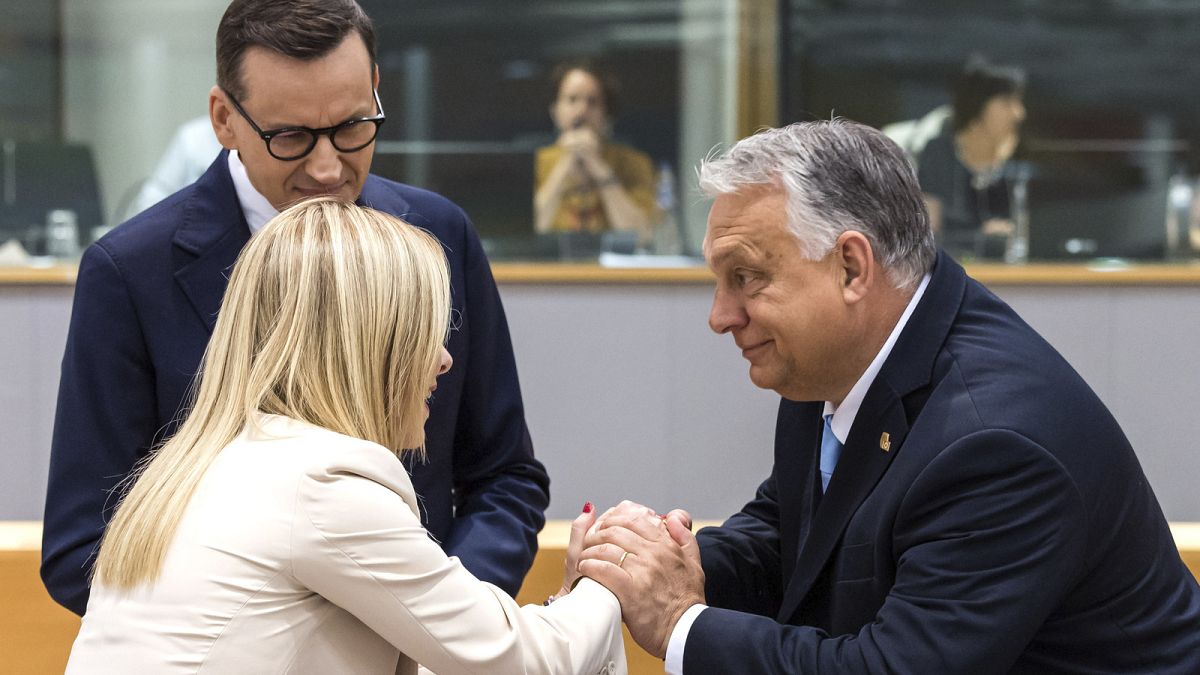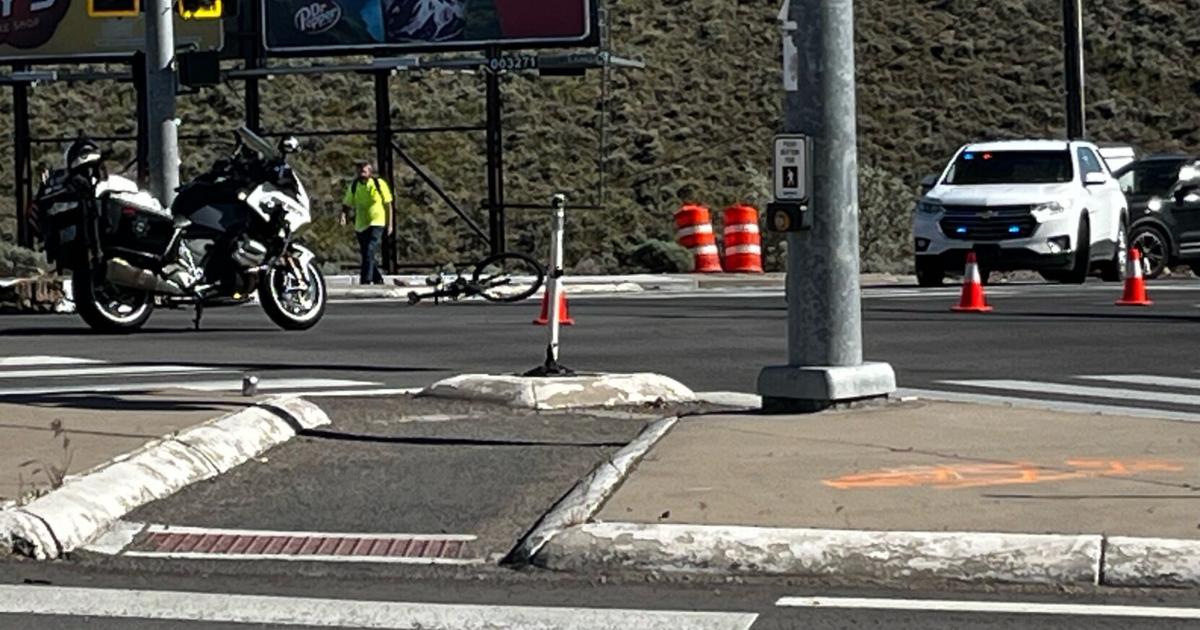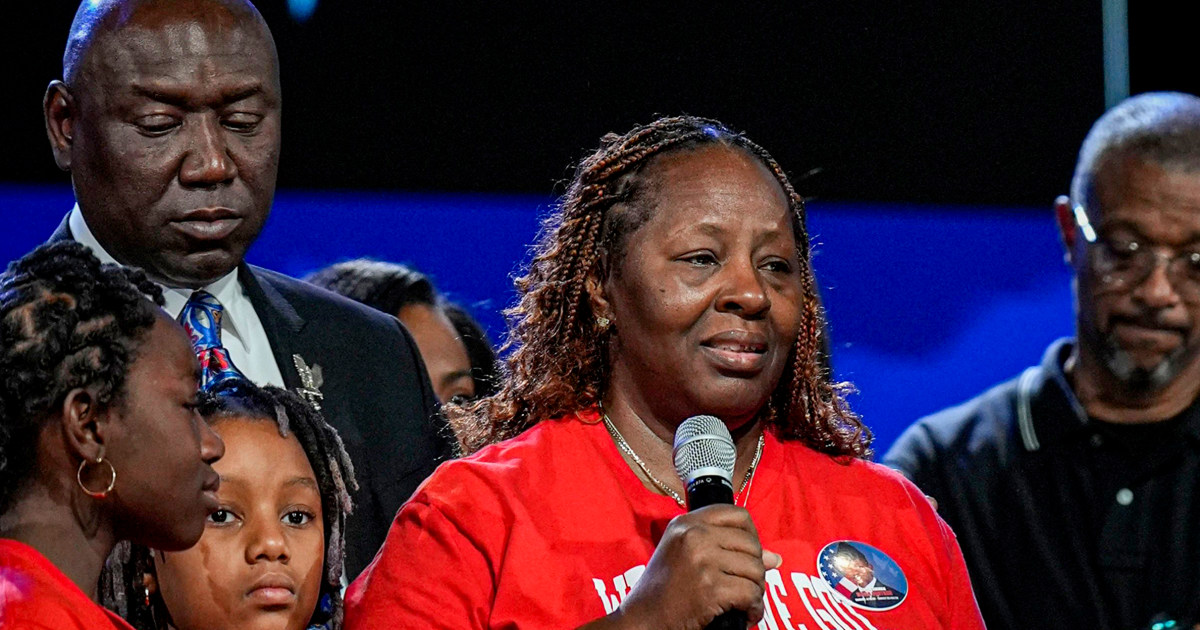World
State of the Union: Five takeaways from Ursula von der Leyen’s speech
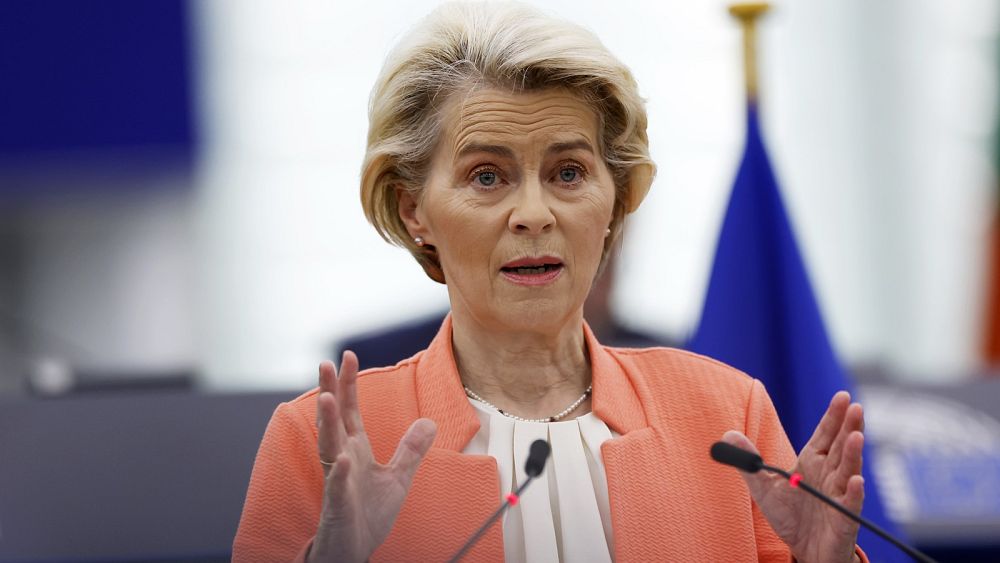
Ursula von der Leyen delivered on Wednesday her State of the European Union speech, blending past achievements with future ambition.
The hour-long address is the last of its kind before the next European elections, scheduled to take place between 6 and 9 June.
Mindful of this, the president of the European Commission used the occasion in Strasbourg to offer a detailed retrospective of the main political feats achieved by her executive across the succession of crises that have hit the bloc over the past few years.
She also looked ahead and made several major announcements that suggest her policies have not yet reached an end.
“It is the moment to show them that we can build a continent where you can be who you are, love who you want, and aim as high as you want,” von der Leyen told MEPs.
“Once again – this is Europe’s moment to answer the call of history.”
Here are the main takeaways from this year’s State of the European Union.
It’s the economy, stupid
The health of the European economy occupied the largest section of the address and permeated virtually every topic the president touched upon.
Von der Leyen’s diagnosis was definitely mixed.
On the one hand, she portrayed the economy as innovative, resilient and well-suited to achieve climate neutrality. But on the other hand, she warned about various obstacles that threaten to hinder the bloc’s prosperity and its ability to stand up vis-à-vis its competitors on the global stage.
Von der Leyen name-checked three big challenges: a widespread shortage of workers, persistently high prices, and the administrative burden faced by small companies.
“Hospitals are postponing treatment because of lack of nurses. And two-thirds of European companies are looking for IT specialists,” von der Leyen said.
“Eight million young people are neither in employment, education or training. Their dreams (are) put on hold, their lives on standby,” she went on. “This is not only the cause of so much personal distress. It is also one of the most significant bottlenecks for our competitiveness.”
Von der Leyen then said she would appoint an EU envoy for small and medium-sized businesses (SMEs) under her direct command in order to understand better the “everyday challenges” of European companies. She also promised to reduce the reporting obligations placed on SMEs by at least 25% and facilitate access to finance for cutting-edge technologies.
In a surprising move, von der Leyen tasked Mario Draghi, the former president of the European Central Bank and prime minister of Italy, with drafting a report on the future of European competitiveness in the context of the green transition.
“Europe will do ‘whatever it takes’ to keep its competitive edge,” von der Leyen, echoing Draghi’s memorable line at the peak of the European debt crisis.
China under the microscope
In what was arguably the most eye-catching, did-she-really-say-that moment of the whole speech, Ursula von der Leyen announced an official anti-subsidy investigation into the low-cost electric cars coming from China into the bloc.
The flow of these products has been incredibly rapid: Brussels estimates Chinese brands of electric vehicles enjoy a 20% price difference compared to European brands and have amassed an 8% share of the European market, which could jump to 15% by 2025.
“Competition is only true as long as it is fair,” von der Leyen said. “Too often, our companies are excluded from foreign markets or are victims of predatory practices. They are often undercut by competitors benefitting from huge state subsidies.”
The president, who has employed the strategy of “de-risking” to deal with Beijing, reminded MEPs of how Europe’s solar industry went from global leader to second-rate due to the pressure exerted by its “heavily subsidised Chinese competitors.”
The same fate, she warned, could befall Europe’s car industry as the market becomes “flooded” with China-made electric cars whose “price is kept artificially low.”
“And as we do not accept this from the inside, we do not accept this from the outside,” von der Leyen said, prompting applause from lawmakers.
“Europe is open to competition but not for a race to the bottom. We must defend ourselves against unfair practices.”
The investigation could lead to the imposition of tariffs to offset the effects of the Chinese subsidies, which take the form of grants, preferential taxes and low taxation.
Climate neutrality but don’t forget about the farmers
As was the case in all her previous State of the Union speeches, von der Leyen spoke at great length about her flagship policy – the European Green Deal – and the bloc’s long-term mission to become climate-neutral by 2050.
“Four years ago, the European Green Deal was our answer to the call of history. And this summer – the hottest ever on record in Europe – was a stark reminder of that,” she said.
Von der Leyen celebrated the many pieces of climate legislation that have been successfully passed since her arrival in Brussels and praised Europe’s “unique biological diversity” made up of thousands of animal species, forests, moors and wetlands.
“Loss of nature destroys not only the foundations of our life but also our feeling of what constitutes home,” von der Leyen said.
Her passionate comments, delivered in German, appeared to evoke the Nature Restoration Law, which this spring became the target of relentless opposition from right-wing parties and barely survived a knife-edge vote in the European Parliament.
Conservatives had argued the proposed law would decrease food production and endanger the livelihoods of European farmers, fears that were widely shared across social media and debunked by climate scientists, NGOs and the private sector.
Von der Leyen did not mention the law by name but took a moment to commend the contribution made by the agricultural sector.
“Food security, in harmony with nature, remains an essential task,” she said. “I would like to take this opportunity to express my appreciation to our farmers, to thank them for providing us with food day after day.”
Then, she pointedly added: “We need more dialogue and less polarisation.”
A stronger and larger Union
Next to the economy and the climate crisis, Russia’s war on Ukraine was the other overarching topic throughout the address. Once again, von der Leyen promised to sustain financial and military support for Ukraine “for as long as it takes.”
Notably, she avoided new pledges on sanctions against the Kremlin or the use of immobilised assets to pay for the war-torn nation’s reconstruction. Instead, her words served as an introduction to a wider reflection on enlargement and the bloc’s ability to welcome new member states, like Ukraine, Moldova and the Western Balkans.
“In a world where some are trying to pick off countries one by one, we cannot afford to leave our fellow Europeans behind,” she said. “In a world where size and weight matter, it is clearly in Europe’s strategic and security interests to complete our Union.”
The ultimate goal should be a union of 500 million people living in freedom, democracy and prosperity, she added, but getting there will not be an “easy road.”
The president insisted the process of enlargement was and would remain “merit-based” propelled by “hard work and leadership” and refused to commit to any fixed deadline, as Charles Michel, the president of the European Council, did last month.
“We need to move past old, binary debates about enlargement. This is not a question of deepening integration or widening the Union,” she said. “We can and we must do both.”
Von der Leyen said she was open to reforming the EU treaties, as some leaders have called for, but the step was not indispensable in order to guarantee enlargement. As an alternative, the president said the Commission would launch a review process to identify the policy areas that would need to be adapted in a larger union.
“The good news is that with every enlargement those who said it would make us less efficient were proven wrong,” she said.
Keeping AI in check
Von der Leyen didn’t mince words when she spoke about the risks posed by one of the most disruptive technologies in the history of humankind: artificial intelligence (AI).
AI is “moving faster than even its developers anticipated. So we have a narrowing window of opportunity to guide this technology responsibly,” she warned, noting the “vast range” of uses that these systems can be given, “both civilian and military.”
The president then proposed a three-pronged approach to manage and contain AI threats: “guardrails, governance and guiding innovation.”
On guardrails, she invoked the AI Act, the ground-breaking legislation the Commission proposed in April 2021 which is currently undergoing negotiations between MEPs and member states. The act, which imposes market rules on AI-powered systems according to their potential risks for society, is “already a blueprint for the whole world.”
Regarding governance, von der Leyen said the world needed to step up an international body akin to the IPCC, the United Nations panel that monitors climate change and produces advice for governments, so as to develop a “fast and globally coordinated response” against AI’s breakneck evolution.
On the third point, guiding innovation, von der Leyen called for an “open dialogue” between policymakers and AI developers so that the private sector voluntarily commits to a basic set of rules before the AI Act comes into full force.
“We should bring all of this work together towards minimum global standards for safe and ethical use of AI,” she said.

World
The CW’s Top Exec on Walker’s Uncertain Fate, Potential All American ‘Reboot’ and Superman & Lois’ ‘F–king Awesome’ Sendoff

ad
World
Justice Dept. makes arrests in North Korean identity theft scheme involving thousands of IT workers
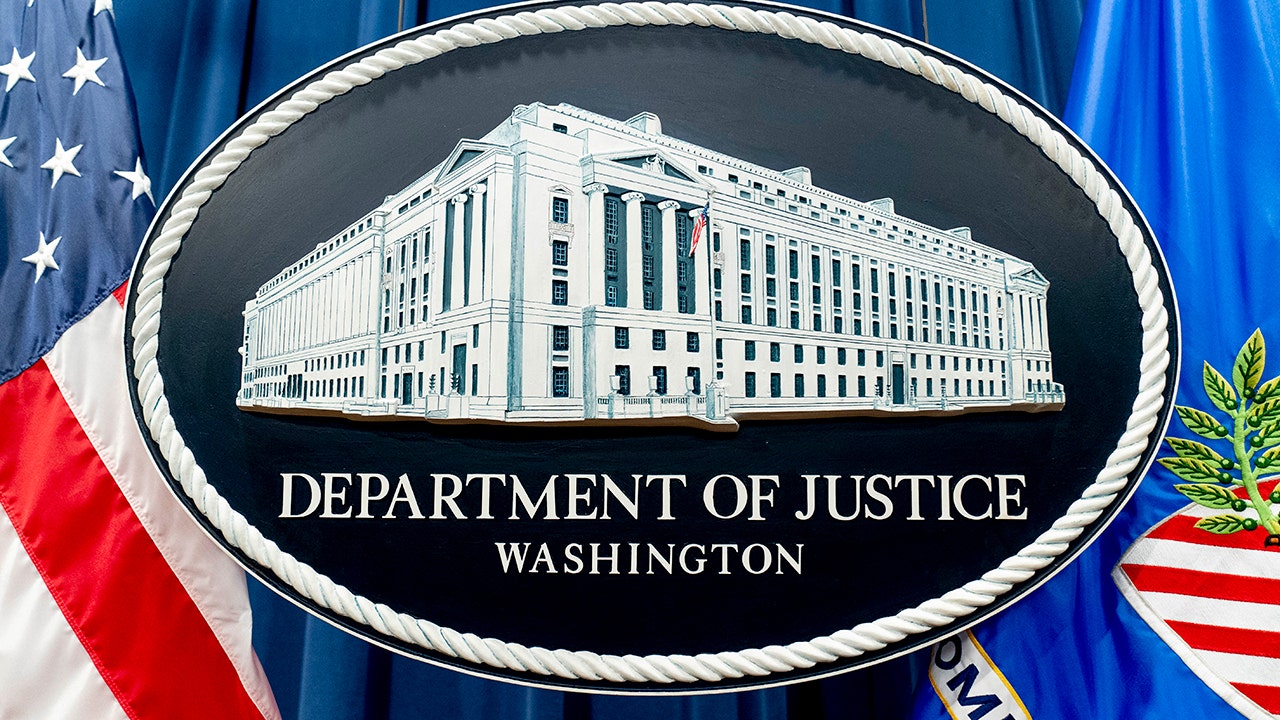
The Justice Department announced Thursday multiple arrests in a series of complex stolen identity theft cases that officials say are part of a wide-ranging scheme that generates enormous proceeds for the North Korean government, including for its weapons program.
The conspiracy involves thousands of North Korean information technology workers who prosecutors say are dispatched by the government to live abroad and who rely on the stolen identities of Americans to obtain remote employment at U.S.-based Fortune 500 companies, jobs that give them access to sensitive corporate data and lucrative paychecks. The companies did not realize the workers were overseas.
NORTH KOREA’S MENACING NUCLEAR THREAT IS TOO DANGEROUS TO IGNORE. US MUST LEAD BEFORE TIME RUNS OUT
The fraud scheme is a way for heavily sanctioned North Korea, which is cut off from the U.S. financial system, to take advantage of a “toxic brew” of converging factors, including a high-tech labor shortage in the U.S. and the proliferation of remote telework, Marshall Miller, the Justice Department’s principal associate deputy attorney general, said in an interview.
The seal for the Justice Department is photographed in Washington, Nov. 18, 2022. The Justice Department has announced three arrests in a complex stolen identity scheme that officials say generates enormous proceeds for the North Korean government, including for its weapons program. (AP Photo/Andrew Harnik)
The Justice Department says the cases are part of a broader strategy to not only prosecute individuals who enable the fraud but also to build partnerships with other countries and to warn private-sector companies of the need to be vigilant — and not duped — about the actual identities of the people they’re hiring.
FBI and Justice Department officials launched an initiative in March centered on the fraud scheme and last year announced the seizure of more than a dozen website domains used by North Korean IT workers.
“More and more often, compliance programs at American companies and organizations are on the front lines of protecting our national security,” Miller said. “Corporate compliance and national security are now intertwined like never before.”
The Justice Department said in court documents in one case that more than 300 companies — including a high-end retail chain and a “premier Silicon Valley technology company” — have been affected and that more than $6.8 million in revenue has been generated for the workers, who are based outside of the U.S., including in China and Russia.
Those arrested include an Arizona woman, Christina Marie Chapman, who prosecutors say facilitated the scheme by helping the workers obtain and validate stolen identities, receiving and hosting laptops from U.S. companies who thought they were sending the devices to legitimate employees and helping the workers connect remotely to companies.
According to the indictment, Chapman ran more than one “laptop farm” where U.S. companies sent computers and paychecks to IT workers they did not realize were overseas.
At Chapman’s laptop farms, she allegedly connected overseas IT workers who logged in remotely to company networks so it appeared the logins were coming from the United States. She also is alleged to have received paychecks for the overseas IT workers at her home, forging the beneficiaries’ signatures for transfer abroad and enriching herself by charging monthly fees.
Other defendants include a Ukrainian man, Oleksandr Didenko, who prosecutors say created fake accounts at job search platforms that he then sold to overseas workers who went on to apply for jobs at U.S. companies. He was was arrested in Poland last week, and the Justice Department said it had seized his company’s online domain.
A Vietnamese national, Minh Phuong Vong, was arrested in Maryland on charges of fraudulently obtaining a job at a U.S. company that was actually performed by remote workers who posed as him and were based overseas.
It was not immediately clear if any of the three had lawyers.
Separately, the State Department said it was offering a reward for information about certain North Korean IT workers who officials say were assisted by Chapman.
And the FBI, which conducted the investigations, issued a public service announcement that warned companies about the scheme, encouraging them to implement identity verification standards through the hiring process and to educate human resources staff and hiring managers about the threat.
World
Taiwan grapples with divisive history as new president prepares for power

Taipei, Taiwan – Even as Taiwan prepares for the inauguration of its eighth president next week, it continues to struggle over the legacy of the island’s first president, Chiang Kai-shek.
To some, Chiang was the “generalissimo” who liberated the Taiwanese from the Japanese colonisers. To many others, he was the oppressor-in-chief who declared martial law and ushered in the period of White Terror that would last until 1992.
For decades, these duelling narratives have divided Taiwan’s society and a recent push for transitional justice only seems to have deepened the fault lines. Now, the division is raising concern about whether it might affect Taiwan’s ability to mount a unified defence against China, which has become increasingly assertive in its claim over the self-ruled island.
“There is a concern when push comes to shove if the civilians work well with the military to defend Taiwan,” said historian Dominic Meng-Hsuan Yang of the University of Missouri in the United States.
On February 28, 1947, Chiang’s newly-arrived Kuomintang (KMT) troops suppressed an uprising by Taiwan natives, killing as many as 28,000 people in what became known as the February 28 Incident. In the four-decade-long martial law era that followed, thousands more perished.
This traumatic history met its official reckoning in 2018, when the Taiwan government set up its Transitional Justice Commission modelled after truth and reconciliation initiatives in Africa, Latin America and North America to redress historical human rights abuses and other atrocities.
When the commission concluded in May 2022, however, advocates and observers said they had seen little truth and hardly any reconciliation.
Almost from the first days of the commission, the meting-out of transitional justice became politicised across the blue-versus-green demarcation that has long defined Taiwan’s sociopolitical landscape, with blue representing KMT supporters and green the ruling Democratic Progressive Party (DPP).
A recently published anthology entitled Ethics of Historical Memory: From Transitional Justice to Overcoming the Past explains how the way Taiwanese remember the past shapes how they think about transitional justice. And as that recollection is determined by which camp they support, each champions their own version of Taiwan’s history.
“That’s why transitional justice seems so stagnant now,” explained Jimmy Chia-Shin Hsu, research professor at the legal research institute Academia Sinica who contributed to and edited the book. “Whatever truth it uncovers would be mired in the blue-green narrative.”
A non-partisan view, Hsu said, is to credit the DPP with codifying transitional justice and Lee Teng-hui, the first democratically elected KMT president, with breaking the taboo on broaching the February 28 Incident.
The past shaping the future
In February, Betty Wei attended the commemoration for the February 28 incident for the first time and listened intently to the oral history collected from the survivors. Wei, 30, said she wanted to learn more about what happened because her secondary school textbook had brushed over what many consider a watershed event in a few cryptic lines, and many of her contemporaries showed little interest.
“In recent years the voices pushing for transitional justice have grown muted,” Wei told Al Jazeera. “A lot of people in my generation think the scores are for previous generations to settle.”

In Taiwan, the past is never past, and rather it is fodder for new fights.
As the DPP gears up for an unprecedented third consecutive term, the unfinished business of removing the island’s remaining statues of Chiang has resurfaced as the latest front in what Yang, the historian, described to Al Jazeera as “this memory war”.
More than half of the initial 1,500 monuments have been taken down over the past two years, with the remaining statues mostly on military installations.
Yang argues that is because the top brass rose through the ranks under martial law and many still regard Chiang as their leader, warts and all. For them, toppling the statues would be an attack on their history.
The statues embody “the historical legacy the military wants to keep alive,” Yang said. “That’s a source of tension between the military and the DPP government.”
On the eve of William Lai Ching-te taking his oath as the island’s next president, Taiwanese will for the first time mark the “White Terror Memorial Day” on May 19, the day when martial law was declared in 1949.
While it is clear Taiwanese have promised to never forget, whom and how to forgive has become far murkier.
As the former chairman of the Taiwan Association for Truth and Reconciliation, the first NGO advocating for the cause, Cheng-Yi Huang lauded the government’s move to take over the KMT’s private archives in recent years but lamented there had been too little truth-seeking so far.
For example, under the February 28 Incident Disposition and Compensation Act, Huang said many have chosen to stay silent about their complicity because only victims get compensation.
However, Taiwan’s tumultuous history means the line between victim and victimiser is rarely clear-cut.

By digging into military archives, Yang has shed light on how Chinese were kidnapped and pressed into service by the KMT in the last years of the Chinese Civil War. Those who tried to flee were tortured and even murdered. And the native Taiwanese who rose up to resist KMT’s suppression were persecuted as communists.
“Under martial law, the military was seen as an arm of the dictatorship, but they were also victims of the dictator’s regime,” Yang told Al Jazeera. “The transitional justice movement has missed the opportunity to reconcile Taiwanese society with the military.”
To Hsu, Beijing’s belligerence demands Taiwanese of all stripes find a common cause.
“As we’re facing the threat from the Chinese Communist Party, it’s imperative that we unite in forging a collective future,” said Hsu, to a standing-room-only book talk during the Taipei International Book Exhibition in late February.
“And how we remember our past will shape this future of ours.”
-

 Politics1 week ago
Politics1 week agoBiden takes role as bystander on border and campus protests, surrenders the bully pulpit
-

 Politics1 week ago
Politics1 week ago'You need to stop': Gov. Noem lashes out during heated interview over book anecdote about killing dog
-

 Politics1 week ago
Politics1 week agoRFK Jr said a worm ate part of his brain and died in his head
-

 News1 week ago
News1 week agoMan, 75, confesses to killing wife in hospital because he couldn’t afford her care, court documents say
-

 World1 week ago
World1 week agoPentagon chief confirms US pause on weapons shipment to Israel
-

 Politics1 week ago
Politics1 week agoHere's what GOP rebels want from Johnson amid threats to oust him from speakership
-

 World1 week ago
World1 week agoPro-Palestine protests: How some universities reached deals with students
-

 World1 week ago
World1 week agoConvicted MEP's expense claims must be published: EU court
